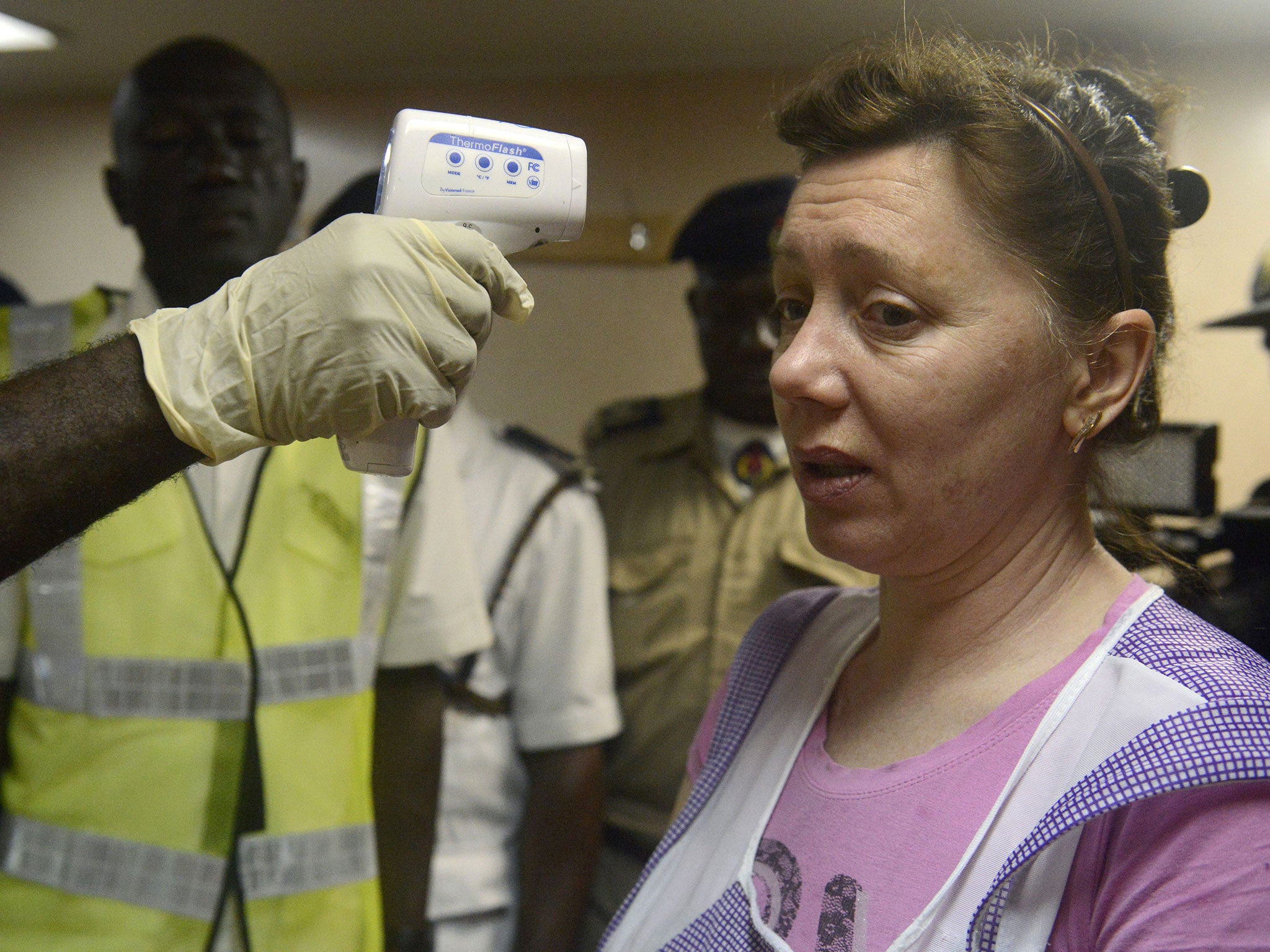Ebola: Passengers entering the UK to be screened for deadly virus
George Osborne said Government 'will absolutely take that action' if necessary

Enhanced screening for Ebola will be introduced at Heathrow and Gatwick airports and Eurostar terminals following advice from the Chief Medical Officer, Downing Street has said.
The screening will be introduced for passengers travelling from the affected regions - Liberia, Sierra Leone and Guinea - to give the UK an additional level of protection from the deadly virus.
The tests will involve assessing passengers' recent travel history, who they have been in contact with and onward travel arrangements as well as a possible medical assessment conducted by trained medical personnel.
A Downing Street spokeswoman added that screenings had already been in place in the West African nations impacted by the disease, and measures going beyond enhanced screening will be "kept under review."
"As the Chief Medical Officer's advice makes clear, these measures will help to improve our ability to detect and isolate Ebola cases. However, it is important to stress that given the nature of this disease, no system could offer 100 per cent protection from non-symptomatic cases," she added.
She also stressed that the overall risk to the public in the UK is "very low" and the country benefits from some of the best public health protection systems in the world.
"Contingency planning is also under way including a national exercise and wider resilience training to ensure the UK is fully prepared," she said.
Chief Medical Officer, Professor Dame Sally Davies, said it was right to consider further measures to make sure potential cases of the virus are identified as quickly as possible in the UK.
She said: "Although the risk to the UK remains low, in view of the concern about the growing number of cases, it is right to consider what further measures could be taken, to ensure that any potential cases arriving in the UK are identified as quickly as possible."
The announcement came amid mounting pressure on the Government to follow America's example, who announced plans to introduce screening for the highly contagious virus at five major airports.
Chancellor George Osborne said earlier today that screening will be introduced if medical experts say it is a necessary step that should be taken.
According to research from a group of American universities monitoring the spread of the disease, the UK is the third-most-likely country outside Africa to "import" Ebola.
Mr Osborne said the Government was committed to protecting the British public from the disease.
UK hospitals are on standby to deal with a potential Ebola outbreak and the Royal Free Hospital in London, where nurse William Pooley was treated after contracting the disease in Sierra Leone, has sent specialist equipment to hospitals in Liverpool, Newcastle and Sheffield.
His comments came amid conflicting signals from Whitehall, with the Department of Health insisting it had no plans for screening, while Defence Secretary Michael Fallon said the existing Government policy was in line with World Health Organisation (WHO) advice.
"The World Health Organisation advice is that it is better to screen on exit from a country to make sure that people who are leaving are not infected, rather than trying to screen people who arrive," Mr Fallon told BBC News.
"It is very hard to be able to track people who are changing planes and arriving by different means in the United Kingdom.
"It is particularly difficult because the symptoms may not be obvious for a number of weeks after you actually catch the disease. It is not straightforward."
However the chairman of the Commons Home Affairs Committee, Keith Vaz, said the Government should not take any chances.
He called for tests at airports, train stations and ports as well as greater support for immigration officers to make sure they have the training to deal with the outbreak.
Join our commenting forum
Join thought-provoking conversations, follow other Independent readers and see their replies
Comments